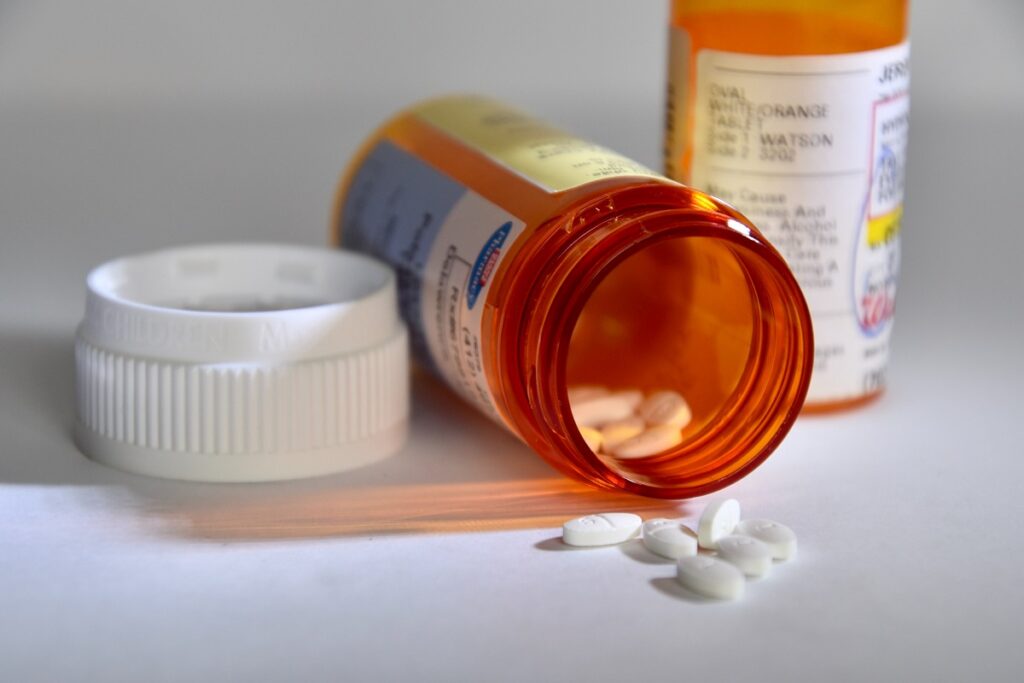Many disabled drivers need to take regular prescription or over-the-counter medication to manage or treat their disabilities. It is crucial that you stay safe and within the law as a driver if you need this kind of medication.
Below we’ll discuss the effects of over-the-counter or prescription drugs on driving, and outline our top safety tips for disabled drivers who require over-the-counter or prescription drugs.
Can OTC Drugs Impair Driving?
If taken properly and in the correct dosages, most over-the-counter drugs do not impair driving. Some OTC drugs can impair driving under certain circumstances.
How Can Taking Over-The-Counter Drugs Affect Your Ability To Drive Safely?
Painkillers and cold medicines can lead to drowsiness. Antihistamines can make people feel sleepy and cause blurred vision. Sleep aids can have an effect that lasts until the next day. All of these potential side effects of over-the-counter drugs can impair driving.
What Prescription Drugs Can’t You Drive With?
It is not safe to drive while under the influence of the following prescription drugs:
- Amphetamine
- CBD
- Clonazepam
- Diazepam
- Flunitrazepam
- Lorazepam
- Medical marijuana
- Methadone
- Morphine and other opioid-based drugs
- Oxazepam
- Temazepam
Disability Medication List
Many people with disabilities take some of the following treatments:
- Prescription drugs that manage or treat specific disabilities
- Over-the-counter painkillers
- Medical marijuana
- Antihistamines
- Cold medicines
- Sleep aids
Side Effects Of Over-The-Counter And Prescription Drugs
The following are common possible side effects when taking over-the-counter or prescription drugs:
- Drowsiness
- Sluggish movement
- Dizziness
- Reduced reaction time
- Fainting
- Difficulty focusing
- Impaired vision
- Nausea
- Hyperactivity
Safety Tips For Disabled Drivers Who Require Over-The-Counter Or Prescription Drugs
1. Be Knowledgeable About The Medications You Take
Read the labels on your medication and know how long the effects last, as this information is important to consider when planning to drive. For example, some sleep aids can have an effect that lasts until the next day.
2. Discuss Your Medications With Your Health Care Provider Or Pharmacist
Your health care provider or pharmacist will be able to advise you on when to take your medicine so that it has the least possible effect on driving. They might also recommend that you reduce your dose or suggest a medication with fewer potential side effects. When inquiring about a disabled parking permit online, be sure to mention all medications you’re taking beforehand.
3. Monitor How You’re Feeling
Some medications can result in drowsiness and tiredness. If you feel too tired or groggy to drive, always take the safe option and pull over for a rest, nap, coffee, and some fresh air.
4. Keep Spare Medications In Your Vehicle
If you are dependent on medication, either over-the-counter or prescription, make sure you have that medication in your vehicle. This means you will not be caught short if you are delayed or stranded.
5. Have Snacks And Water In Your Vehicle
Some medications can cause nausea. To stay safe while driving, make sure you have snacks and plenty of water so you can stop for a break to refuel when you need to.
6. Never Mix Medications With Alcohol
Although most states allow people to drink a small amount and still be within the legal driving limit, it is always safest to avoid alcohol before you drive. If you are on medication, it is especially unwise to drink alcohol because the combination of drugs and alcohol can be potent.
7. Do Not Drive Under The Influence Of Medical Marijuana
Medical marijuana is a popular treatment for a wide range of medical conditions. Some forms of MMJ are very potent and can have psychoactive effects, so it is never safe to use medical marijuana and drive.
8. Drive Safely And Defensively
Whether you’re taking OTC medication or not, you should always practice safe defensive driving. This involves:
- Keeping a good distance away from the vehicle in front
- Driving within the speed limit
- Not relying on other road users to drive safely
- Being very aware of your surroundings
- Avoiding any type of distractions
How Do You Get A Disabled Parking Permit in Your State?
If you do not yet have a disabled parking permit, the best way to get one is to arrange a telemedicine consultation with a physician who will examine you and verify your disability. They will then complete an application for disabled parking, which you can sign and submit to your local Department of Motor Vehicles.
Featured image by Olga DeLawrence on Unsplash


